Someone asked me recently how to write a great book. She wondered, “Is there a formula?” Rather than a formula, I would suggest there are important guidelines to help you get started to write your book. Get clear on these before you get writing—or as soon as you are able—and you are more likely to write a great book! Here’s the most important thing to know:
Yes, You Can Write a Great Book!
 I’m sure you want to write a book that makes an impact—inspires, supports, guides, creates positive change for readers. The kind of book readers share with friends, buy as gifts, and recommend on Facebook and Goodreads.
I’m sure you want to write a book that makes an impact—inspires, supports, guides, creates positive change for readers. The kind of book readers share with friends, buy as gifts, and recommend on Facebook and Goodreads.
Most of my clients write books that powerfully transform some aspect of their readers’ lives. Here are just a few examples:
- Consider the Nautilus Award-Winning book, The Soul of All Living Creatures, by Dr. Vint Virga. This great book offers stories about animals that open our hearts, minds and souls to the four legged creatures we share our planet with.
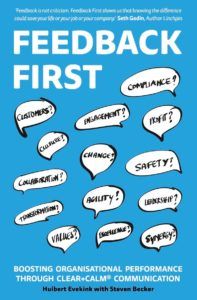
- Success Without Stress: Simple Steps to Finding Calm for Women Business Owners became a finalist for two pr
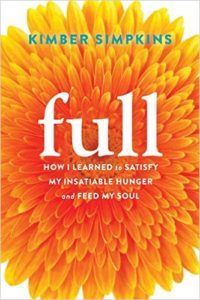 esitgious awards: 2017 Next Generation Indie Book Awards and 2017 New Generation Indie Book Award. This great book helps women business owners reach their goals calmly, amid the chaos of the entrepreneurial lifestyle.
esitgious awards: 2017 Next Generation Indie Book Awards and 2017 New Generation Indie Book Award. This great book helps women business owners reach their goals calmly, amid the chaos of the entrepreneurial lifestyle. - On the Verge by Cara Bradley gives readers tools to make mindfulness a daily practice. It was recently featured on the Oprah Network with a four page reprint. Imagine how many people that book is impacting!
- Arts Awareness, by Dr. Patricia Hoy shows how readers can apply the principles used in the arts to expand their everyday consciousness.
- Full by Kimber Simpkins is also a Nautilus Award-Winner. Full offers readers a glimpse into how the author shifted her relationship with her body over time and overcame an eating disorder.
- Feedback First won two Stevie Awards from the American Business Awards (For Best Business Book and Best Business E-Book). This gem by Huibert Jan Evekink and Steven Becker teaches team leaders and members to give and receive constructive feedback within multinational and multicultural teams, taking into account different cultures and the expectations of millenials, in particular.
- The Creativity Cure, by Drs. Carrie and Alton Barron, offers a “Prescription for Happiness” and delivers!
Imagine the impact each of these books is having on their readers!
What about your book? You may wonder how to bring your wisdom and brilliance onto the page? How can you help your readers transform their lives?
How Do You Write a Great Book? What Are These Authors’ Secrets?
Writing a great book starts with a vision and a plan.
Before you ever write a word, get crystal clear on your vision for what you want readers to experience.
And to get clear about that, you need to identify who your readers are, and deeply understand what’s going on in their minds and hearts.
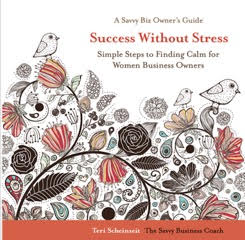 For instance, in Success Without Stress, Teri had a clear image of her reader: a business owner with a vision for how her business should be and where she wants her business to go, but who’s juggling so many priorities and projects, she constantly in a state of stress, unable to get out of crisis mode. The reader is a victim of her own success. And she desperately wants to change that.
For instance, in Success Without Stress, Teri had a clear image of her reader: a business owner with a vision for how her business should be and where she wants her business to go, but who’s juggling so many priorities and projects, she constantly in a state of stress, unable to get out of crisis mode. The reader is a victim of her own success. And she desperately wants to change that.
Keeping that image in mind helped Teri write in a conversational, supportive and humorous voice that immediately captivates her readers and makes them open to the strategies she shares. She makes it feel doable—easy, even.
Sometimes identifying your reader is so obvious you miss it! Dr. Carrie Barron had a working title of I’m Creative But I Can’t Create. That title implies readers that they’re creative and who see creative blocks as their big problem. Yet, as Carrie spoke to me about her clients, it hit me that this was really her market—and a huge market—people who were depressed, anxious or unhappy.
That clarity led to a great title—The Creativity Cure. Knowing her readership and the “promise” offered in her title helped Carrie and her co-author write a great book.
This article on How to Clarify Target Market offers 9 Keys for Clarifying Your Readership.
Don’t Forget The Features
Features can make a book engaging, accessible and fun. They can also help readers benefit more deeply from the book’s material by making the reader’s experience more real or deep. To write a great book, the right features can be crucial.
- Graphs or charts can help make the abstract more tangible, or can provide lots of information in an easy-to-access format.
- Journaling prompts or exercises can help readers experience the work directly, perhaps even causing an inner shift in perception about something, or creating an aha moment.
- Cartoons can add humor and make difficult material more palatable, enjoyable even.
- Quotations can inspire.
- Scientific information can be put in sidebars so that it’s there for those who want it, but others can skip the more technical parts.
- Stories or anecdotes can make the material come alive with examples that readers can relate to.
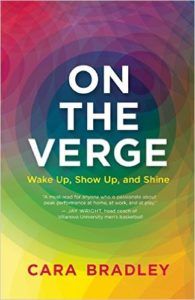 In On the Verge, Cara Bradley offers an “At a Glance” summary of each mindfulness practice at the beginning of each chapter. Readers immediately learn the purpose and benefits of the practice addressed in that chapter, as well as a brief version of the “how-to” of it.
In On the Verge, Cara Bradley offers an “At a Glance” summary of each mindfulness practice at the beginning of each chapter. Readers immediately learn the purpose and benefits of the practice addressed in that chapter, as well as a brief version of the “how-to” of it.
While you’re probably more accustomed to finding summaries at the end of a chapter, this excellent feature quickly inspires and motivates readers to dive into each chapter by providing an idea of the benefits they’ll get out of reading about and applying the practice. With a book that has a strong experiential element (exercises or practices), it’s important to make sure readers have the support to jump in and try things, rather than just read.
Next Step: Structure!
Then there’s how to structure and organize your book—another essential element to write a great book.
Teri settled on short chapters, knowing how frazzled and busy her readers were. And the book itself is short, just over 140 pages, and each page about 3/4 the size of a typical self-help book. Even visually, this book says,”You can do it!”
Cara spent lots of time working out her structure. At first, it was just too complicated and we agreed that it could easily overwhelm her readers, so we spent time simplifying. In this case, structure was something she came back to refine several times.
Even if you have a structure that changes, you will still save so much time by virtue of just having a structure.
When people start writing without a tentative structure in place, they often end up with quite a bit of material they can’t use and a harder time figuring out the structure when they do finally get to it.
You, Too, Can Write a Great Book: Starting with Clarity is Key!
Of course, writing a great book requires time spent editing and getting input from both readers (from your target market) and at least one seasoned editor.
However, when you get clear on vision, market, tone, features and structure BEFORE you start writing, you tend to write a great book—the right book—the one that matches your vision and goals. With that clarity and strong foundation, you also tend to write a book much more quickly, and a book that succeeds in resonating with your readers. Your book is more likely to have the impact you envision.
 That’s why I often recommend that before someone even have a book concept consultation with me, they work through Quick Start to Kick-Start Your Book. Because this is the self-study book writing program that will bring you clarity on all those elements mentioned above. Plus, Quick Start provides the tips you need to make the time to write a great book, stick to it, stay accountable and get support.
That’s why I often recommend that before someone even have a book concept consultation with me, they work through Quick Start to Kick-Start Your Book. Because this is the self-study book writing program that will bring you clarity on all those elements mentioned above. Plus, Quick Start provides the tips you need to make the time to write a great book, stick to it, stay accountable and get support.
I often hear from authors that working through Quick Start was one of the most powerful, practical and helpful steps in getting their book written and published:
“Quick Start saved me from writing the wrong book!”
“I thought I knew what my book was until I worked through Quick Start. Then I really knew my book!”
“I had already written a first draft and it was a mess. Quick Start helped me rethink the book and write a much better second draft.”
What Do I Get with the Quick Start to Kick-Start Your Book Self-Study Program?
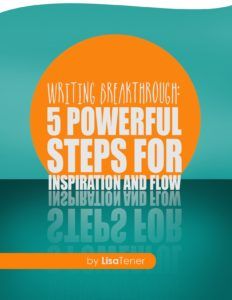 You will receive:
You will receive:
- A downloadable PDF or a physical spiral workbook—your choice!
- Emails to support you in the program and you can time these emails to your preferred pace—daily, every other day or weekly
- An Audio CD or MP3 to guide you through the crucial exercises of visioning and clarifying your book concept
- The BONUS special report: Empowered Author: How to Avoid the 10 Worst Mistakes of New Authors
- The BONUS special report: Writing Breakthrough: 5 Powerful Steps for Inspiration and Flow, which teaches you the same 5 steps I use in my popular Writing in the Zone Program.
And as questions come up, you can ask on my blog and get answers directly from me in a forum where the whole community benefits.
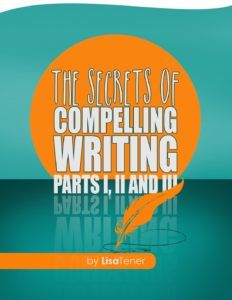 As incentive to get started on your book for summer, I am offering a FREE BONUS of the downloadable special report Secrets of Compelling Writing, which will help you self-edit your book for starters and make your writing come to life for your readers.
As incentive to get started on your book for summer, I am offering a FREE BONUS of the downloadable special report Secrets of Compelling Writing, which will help you self-edit your book for starters and make your writing come to life for your readers.
The downloadable Quick Start Program is just $97 and you can find out more and purchase it here.
How About a Consultation with Your Quick Start, Sir (or Ma’am)?
Once you complete the lessons and exercises in Quick Start, you may well wonder whether your Book Concept is the best it can be:
- Will it resonate with readers?
- Have you chosen the right audience?
- Is it marketable?
- Are there features that would make it fresher? More powerful?
- Does the structure work or is there a better way to organize it?
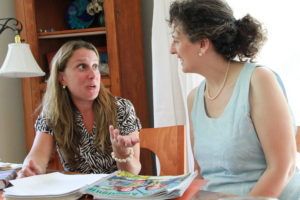 I hear you. And I absolutely LOVE helping authors get clarity and take their book concept from good to great (or even from chaos to clarity)! Here are three options below:
I hear you. And I absolutely LOVE helping authors get clarity and take their book concept from good to great (or even from chaos to clarity)! Here are three options below:
Option 1: Purchase Quick Start on its own and receive The Secrets of Compelling Writing as a free bonus.
Option 2: Purchase Quick Start plus a full-hour Book Concept Consultation (you will receive preparation questionnaire that you and I will both use to prepare for our call and you will receive The Secrets of Compelling Writing as a free bonus). Use both links below:
Option 3: Purchase a 1.5 hour Book Concept Consultation plus preparation questionnaire. Get Quick Start (download version) free, as well as Secrets of Compelling Writing.
Note: This special offer is not widely available, so if you purchased with this link, please inform me by email to get your complimentary copy of Quick Start, which is normally $97 for the download version, and Secrets of Compelling Writing).
Questions? Feel free to email me.
What They Say
Dr. Jeffrey George recently purchased Quick Start to get started on his book.
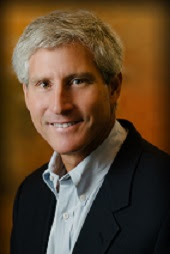
“Lisa’s down-to-earth style and supportive tone helped me immensely in getting started on a lifelong dream—to write a book.
“Lisa’s daily emails provided practical tips to guide an aspiring writer and Quick Start and the accompanying Meet Your Muse exercise offered the emotional support needed to overcome obstacles that have blocked me for years.”
– Dr. Jeffrey George
Here’s what Eileen Wilder, author of The Brave Body Method, Said About Her Single Book Concept Consultation

“When I hired Lisa Tener I was SO nervous… I didn’t really know what I was doing, but felt in my heart I really wanted to write a book.
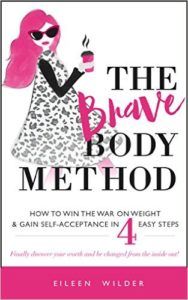
“Through one coaching call, Lisa honed my book idea, gave me feedback on my title, and gave me the strategy for how to market my message. I self-published within the year, and then it got picked up by a publisher!
– Eileen Wilder, author of The Brave Body Method
Next Steps to Write a Great Book: Strong Writing and Editing
Once you get clear on your book concept, you can write your book. Here are a few articles with writing tips. You may decide to bookmark this page for future reference and return here once you’ve settled on your book concept.
These articles will help you with the next steps of writing and then editing:
Writing Tips and Editing Advice: These tips will help you become a better writer and self-edit your work.
Each Chapter Better Than the Last: This article shares three great writing tips that Micaela Karlsen used in her book, A Plant Based Life, chosen
How to Find an Editor: Once you’ve written the whole book, or you feel you need feedback on one or more chapters before proceeding, it’s time to work with an editor. This article explains the different types of editing, as well as how to find an editor.
One step at a time. I don’t want to overwhelm you with instruction here. Perhaps you want to bookmark this page for next steps in the process of writing a great book.



I am passionate about writing. Kindly update me if there is any new info about writing
I’m not sure how to start my memoir book, or what voice to use. I want to start at a certain place/time in my life when I was diagnosed with an illness. I’m not sure where to start the first chapter or how to go about doing an outline. It’ll be a inspirational book to give hope to others going through obstacles in there lives.
Hi Vaniessa,
It’s often powerful to start with a moment in time where the narrator (you) has so much at stake and it creates suspense, curioisity and tension.
With memoir, sometimes you need to start writing and see where it takes you (vs. how-to and self-help books where it makes more sense to get the structure ahead of time. Use all your senses to describe scenes in your life. Paint a picture of a specific time rather than generalizing.
nice blog so you have to decide what the book is about. Good writing is always about something. Write the argument of your book in a sentence, then stretch that out to a paragraph, and then to a one-page outline. After that, write a table of contents to help guide you as you write, then break each chapter into a few sections.
It was an informative blog. Probably at least once a week somebody ask me as i am also a writer. You need to get the idea, or else you won’t have a book at all. Write down your idea. Now you’re ready to write. Space your story out. Once you’ve got your story done, look over it twice yourself. Find an agent. Come up with a good name. Think about a cover, if you want.
Nice blog. There are two kinds of people: Those who think they can write, and those who think they can’t. And, very often, both are wrong. The truth is, most of us fall somewhere in the middle. We are all capable of producing good writing.
Hi Peter,
Yes, maybe those who are a bit misled are not wrong that they can write but just those who think they don’t need any help (such as a good editor) are a bit too cocky, as every writer–even those of us with experience–can benefit from outside input from someone with experience.